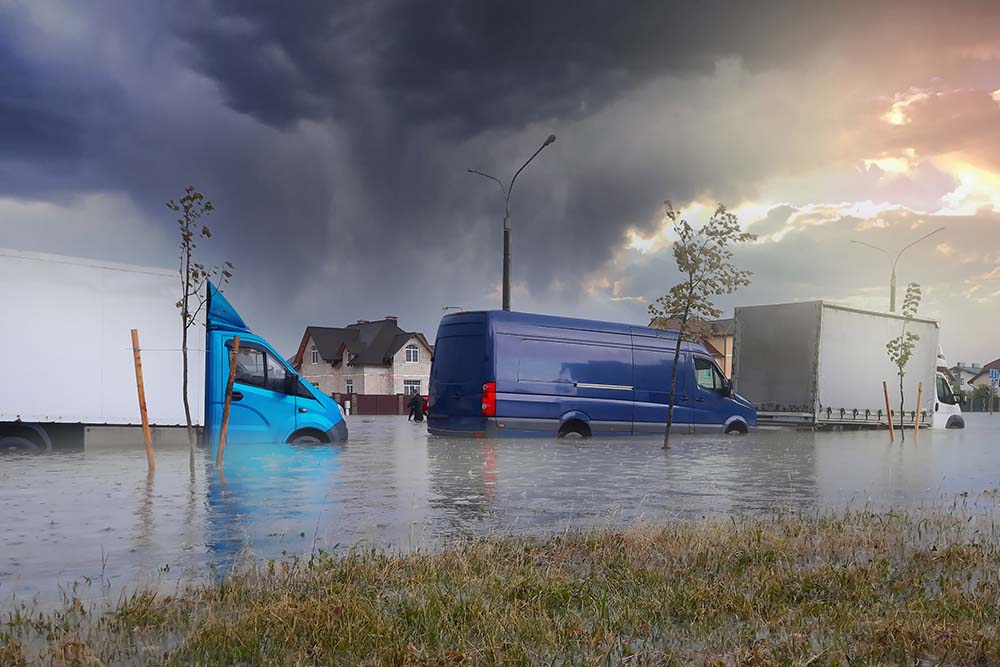What the Autumn Budget means for the logistics sector
04 Nov 24
Read more →

Although the dramatic temperature shifts of 1.5-3°C capture headlines – it is the more subtle disturbances to weather patterns that will have the largest impact on logistics. As insurers raise concerns about the growth in extreme climate change-driven weather harming operations and pushing up premiums, the cargo sectors on land and sea must adapt to the unadaptable.
There’s no ignoring that the planet is changing around us; thankfully, the array of digital utilities at our disposal continues to broaden. By fuelling your business with au courant data supplied by a connected cloud-based system, you will be able to reconfigure your operation in response to whatever climate abnormalities emerge.
Over the past century, the planet has become considerably warmer due to volume of greenhouse gases released into the atmosphere from fossil fuels. The temperature has risen three times faster near the poles than at the equator.
Average ocean temperatures will likely rise faster than air temperatures as reflecting white ice is replaced by heat-absorbing dark saltwater. This prolonged rise in temperature on the sea surface creates powerful storms, including devastating hurricanes.
Warm air can also hold more moisture thereby increasing rainfall, leading to disruptive floods. On a hotter planet there is more energy in the system, hence why we’ve seen more intense storms occur in more peculiar places. Even a nominal deviation from normality could cause significant trouble for logistics operations that rely on specific transport routes.

There is as much cooperation in a supply chain as there is competition. To mitigate the disruption caused by climate change, you need build bridges with suppliers and understand what they’re doing to reduce risk. Thoroughly understanding a supply chain will enable you to create a comprehensive business strategy.
A fully integrated TMS (Transport Management System), WMS (Warehouse Management System) and ePOD (Electronic Proof of Delivery) solution gives you a clear view of your entire operation. Alongside enhanced visibility, such software strengthens communication between suppliers allowing you to foster relationships with the logistics community and stay abreast of problems on the road ahead.
Climate change increases the fragility of every operation, hence why it’s crucial to vary your planned routes, carriers and modalities. With your operation widely dispersed, the risk of multiple consignments being damaged, delayed or lost in a particular location due to a localised weather event is minimalised.
Large retailers have been known to charter dedicated ships when moving their goods. While this has been an attractive option in an economy ravaged by COVID-19; a large-scale loss involving a ship could be catastrophic. Carriers should therefore get used to building-in a broader range of resiliency measures than they are used to.
By implementing a comprehensive TMS, fleet managers can effectively monitor road conditions, weather and traffic; thereby enabling safer operations. This foresight will be indispensable as climate deviancies amplify in the years ahead.

Supply chains and the infrastructure that supports them are designed for a stable climate – but as hazards evolve, it will be necessary to increase investment in adaptation. The COVID-19 pandemic, the Russia-Ukraine War and Brexit have already proven that the logistic sector is agile and adaptable enough to weather unparalleled disruption.
TrackTrans’ TMS, WMS and ePOD solutions enable businesses to anticipate risks, reduce the cost of transport and limit the time that carriers spend waiting/negotiating costs. Try our free demo today and prepare your business for an uncertain environment.
See how TrackTrans can be tailored to your business with no obligation. Simply complete the form and a member of our sales team will contact your directly.